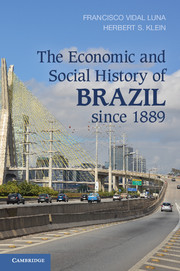Introduction
Published online by Cambridge University Press: 05 June 2014
Summary
Brazil was first visited by the Portuguese in 1500 and initially attracted temporary traders who exchanged European goods with the Indians for Brazil wood, which was used as a dye in Europe. This symmetrical relation changed when the Portuguese decided to permanently settle this American territory. This decision, unusual in the evolution of Portuguese imperial expansion, was based on the need to defend itself against European rivals. Portugal’s undeveloped American possession had become a base for North European attacks on its Asian trade routes, which passed through the South Atlantic. Having a small population in relation to its overseas imperial obligations Portugal preferred to establish small commercial settlements, or factories, and accompanying forts in order to dominate international trade, rather than relying on settler colonies to sustain its imperial system. But in the case of Brazil it had to opt for the second alternative, and using a feudal mechanism left over from the wars with Moslem Spain, it initially divided up its American colony in captaincies that were given to private entrepreneurs. But this system eventually failed and the government was forced to transform Brazil into a settler colony.
- Type
- Chapter
- Information
- The Economic and Social History of Brazil since 1889 , pp. xv - xviPublisher: Cambridge University PressPrint publication year: 2014



